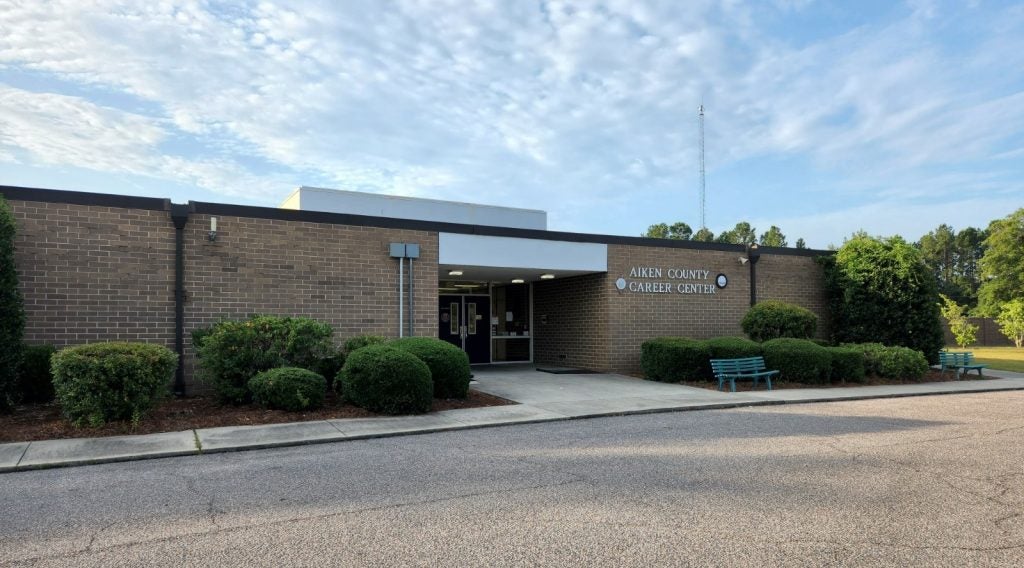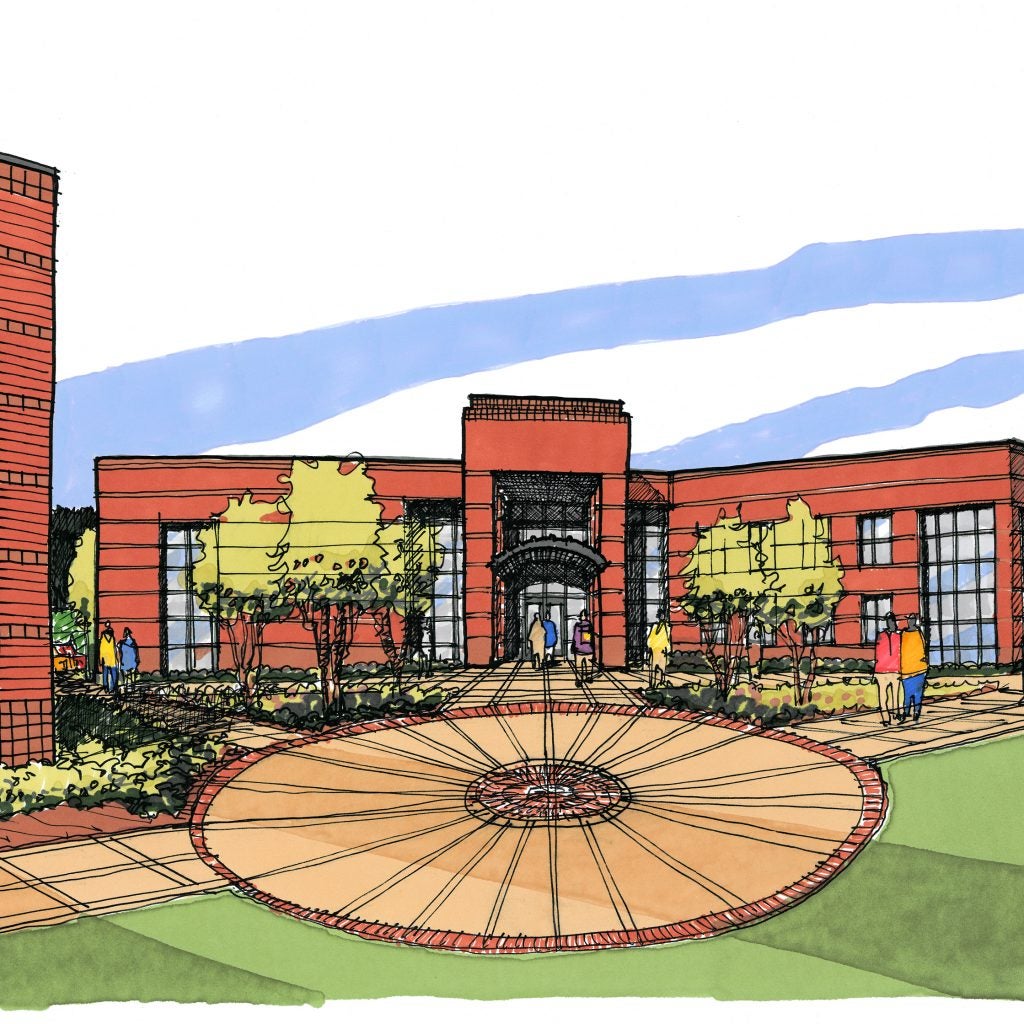A more than $40 million dollar boost will help two educational institutions in Aiken County grow training opportunities for nurses and other healthcare workers.
The funds are coming from the $525 million SRS settlement money. It was originally $600 million until $75 million was paid to the attorneys, stems from the Department of Energy’s failed mixed oxide fuel fabrication that was to be built at SRS along with the weapons grade plutonium that was brought to the state to be converted into fuel pellets for reactor fuel assemblies.
The Aiken County School District will receive $30 million, the full amount that Gov. Henry McMaster recommended. The money will be used to build a new Career and Technology Center to replace the aging facility on Jefferson Davis Highway.
MORE: Richmond County School System releases video to explain millage rate
Superintendent King Laurence says the new, larger center will allow the district to add training programs, including in healthcare fields.
The new center will be built on the campus of Aiken Technical College, which will also get money from the settlement funds.
Aiken Tech is getting $11.5 million, money that will be added to the $3 million the school received several years ago.

Those funds are seed money, the first step in Aiken Tech’s plans to build a new 30,000 square foot Nursing Education Center.
Forest Mahan, president of Aiken Tech, said that will mean the school can add programs to its current roster of healthcare programs.
When the two facilities are completed, it will enhance an already existing partnership by adding new fields of study and growing enrollments.
“We’re looking at just a very seamless progression from secondary education into the technical college, said Laurence. “And then students who want a bachelor’s degree on into USC Aiken. I mean, we’ve got almost a one stop shop here in Aiken County for healthcare, and the partnerships that we have with Aiken Regional and with other healthcare providers in the county.”
Mahan said growth will also mean more opportunities for dual enrollment, students who start their day at CTC then move to classrooms and labs at Aiken Tech.
“And so that would be based upon the need of a student and desire of a student,” he said. “There could be a synergy of their instructors, their students and our instructors and students. We’re still in that process of figuring out how does this work? It’s been done before at other technical colleges. So, we just follow their model.
The growing shortage of nurses is being felt globally.
In February 2022, the National Center for Biotechnology Information, part of the National Institutes of Health, updated a report on its website on the nursing shortage.
It says nurses make up the largest section of the health profession with approximately 29 million nurses and midwives globally, with 3.9 million of those in the United States:
“According to The American Nurses Association (ANA), more registered nurse jobs will be available through 2022 than any other profession in the United States. According to an article in the Nursing Times, The US Bureau of Labor Statistics projects that more than 275,000 additional nurses are needed from 2020 to 2030. Employment opportunities for nurses are projected to grow at a faster rate (9%) than all other occupations from 2016 through 2026.”
MORE: Richmond County School Board plans to raise property taxes
Graduates of healthcare training programs at Aiken Tech fall into one of a few categories, all of them ready to step into a career.
Some courses provide certification in the chosen discipline. Others provide a two-year associates degree. Another path can lead to a four-year degree or higher.
“So, students who have their associate’s degree can enter bachelor completion degree programs and of course at Augusta University,” said Tanya Sudia, dean of the College of Nursing at Augusta University.
“We offer all of the academic degrees. We offer the Bachelor of Science, the masters, the Doctorate of Nursing Practice or nurse practitioner, as well as a PhD for nurse scientists engaged in research.”
It is also possible to attain an education and immediately step into a healthcare job while continuing to pursue higher degrees.

Jacob Sumpter is doing just that at Augusta University.
He is trained, and currently working as a nurse, while continuing his education in the master of science in nursing clinical nurse leader program at Augusta University.
“I got a bachelor’s before this because our program is a master’s program,” he said. “It’s really exciting that I’m going to be able to have a control over my future. If I want to go and get a doctorate in this, I can do that while still working and while still providing the care that I would like to do. And I don’t know if there’s a lot of PhD programs or doctoral programs that do that type of thing.”
He also said he enjoys an added benefit as a nurse.
“Whenever you do get into the field, you are the one working with the patient 100% of the time. You’re the one that they come to, with questions. If you really want that one-to-one interaction, you can get that in nursing. And there are a variety of different jobs that you can do,” he said.
MORE: Columbia County Board of Education approves to lower millage rate
Financial help is available for South Carolina students attending technical colleges to pursue industry credential or associate degree in high-demand career fields like manufacturing, health care, computer science, or logistics.
McMaster announced on July 26 a $25 million investment into Workforce Scholarships for the Future. It provides scholarships to cover the cost of tuition and required fees at any of the state’s 16 technical colleges for any adult or recent high school graduate, according to a news release from his office.
This is in addition to $17 million McMaster announced in November 2021 and $39 million allocated by the state legislature in this year’s budget.
“Workforce Scholarships for the Future will help provide our people with good-paying jobs and our companies with the skilled workforce they need to succeed. We are ensuring that South Carolina’s economic success will continue for generations, and that South Carolina families will be the ones benefitting from it,” McMaster said in the news release.
Dana Lynn McIntyre is a general assignment reporter for The Augusta Press. Reach her at dana@theaugustapress.com












